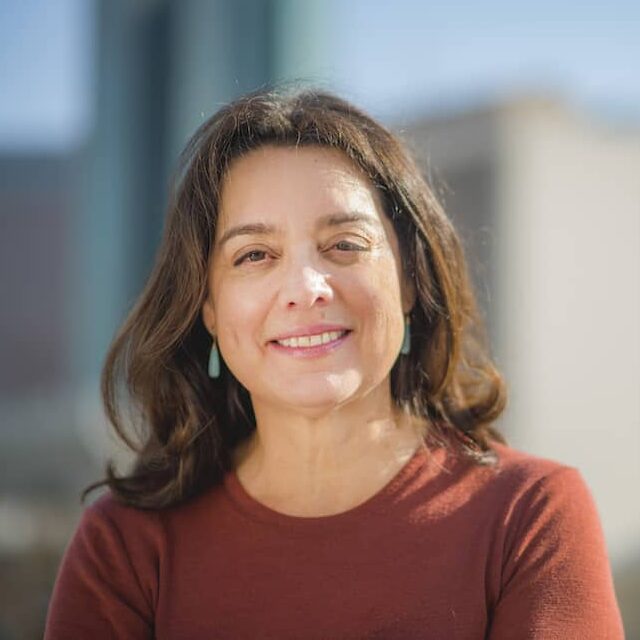Dear reader,
Before the pandemic and all that has spiraled from it — the quarantines, the distancing, the business closures, the lost work and childcare, the how-do-I-pay-the-bills-and-feed-the-kids panic — Diana Higuera and Jennifer Gueddiche had a plan.
It was a good plan.
Together, they run the Aurora-based Rocky Mountain Welcome Center, a nonprofit that helps integrate immigrants, refugees and those seeking or who have received asylum into this country. The center focuses on early childhood education and literacy, which are Higuera’s passion, and on the social and emotional well-being of young adults, work that is close to Gueddiche’s heart.
Higuera opened RMWC in October 2017 in the Mountain View United Church and welcomed to the space other nonprofit partners that served newcomers in various ways across many cultures and languages. Here you might find English language classes, a support group for East African mothers, leadership training, in addition to the center’s own pre-K and kinder classes.
Pre-COVID, the plan was to expand their work, to zero in further on mental health and trauma, to hold regular community forums to allow immigrants and refugees to share their stories with each other and with non-immigrants.
“We want to create welcoming communities and to do that, to build the two-way street, the immigrants have to learn the ropes and understand our culture and we have to understand what they and their people are coming from,” Gueddiche says.
But their services were largely face-to-face and the face-to-face world disappeared behind a mask and computer screen and “our work changed 180 degrees,” Higuera says.
In a meeting before quarantine started and before they closed up their offices, they decided they would become a multi-lingual, multicultural information hub for immigrants “because we knew that no one was going to do that.”
The local Somali community, for example, was getting its COVID-19 information from social media channels based in Somalia and in Minneapolis, where the U.S.’s largest concentration of Somalis live. And while that information was not necessarily wrong, it was not Colorado-specific. So, the Welcome Center turned to its community outreach workers and partners and translators and “we went to our website and created a page to put COVID information in 18 languages and we were updating it daily, with whatever new information was coming out,” Higuera says. They did something similar on the center’s Facebook page, using video and expanding the range of information.
They knew they were on the right track when a COVID video they produced in the Karen language for a segment of the Burmese community racked up 2,000 views. “They are hungry for information,” Higuera says.
Thanks in part to a grant from the Colorado Media Project, one of our founding partners in COLab, Higuera will start feeding that hunger for information by appearing every Thursday at 8 a.m. on Rodolfo Cardenas’ Hablemos Hoy in a segment called Perspectivas on 1150 AM.
She doesn’t want to talk numbers. She wants to talk about how families cope when bus lines are cut due to COVID and now mom can’t get to work or her child to school. She wants to talk about how a parent who has limited English skills and spotty internet is supposed to guide her child in online learning. She wants to hear from listeners.
As one of 10 recipients of the Media Project’s Informed Communities grants, Higuera and Gueddiche are also now joining the larger weekly COLab meetings among dozens of Colorado newsrooms. While they have mostly been listening, they are ready to speak, to guide, to inform, to connect.
I cannot tell you how critical this is. A larger conversation is happening among journalists and the public around coverage of communities that long have gone uncovered or not been covered well, the result of ignorance or arrogance, of newsroom blind spots and deaf ears, of the subjectivity that disguises itself as objectivity in largely white newsrooms. That conversation, reflective, earnest, defensive at times, angry and anguished at others, is a reckoning. It is a call to do better inside newsrooms and outside them by better connecting to the communities we cover,
This is hard, necessary, long-overdue work. It requires both traditional and nontraditional answers. It’s why the Media Project put money into the Informed Communities grantees, why it is backing FreePress’s News Voices: Colorado, why COLab is finding ways we can all work together. And why Susan and I have been merging The Colorado Independent into COLab.
If this mission inspires you, let us know if you are interested in serving on COLab’s board to help grow our new organization and expand the reach of stories for and about immigrants and other overlooked communities statewide.
There are stories out there demanding to be told, stories, as Gueddiche puts it, of people who are “not falling through the cracks, but off the edge.” There are stories that will make us all better neighbors, stronger communities, more engaged citizens. Your support helps us in this effort.
The pandemic changed Higuera’s and Gueddiche’s plans. What comes from that change and what may endure beyond the pandemic should not be seen as a setback, but as an opportunity for a shared step forward.
Thank you,

Tina
This post originally appeared as a newsletter to subscribers on Friday, Sept. 4, 2020. If you’d like to subscribe and have our newsletter delivered directly to your email box, sign up here.




